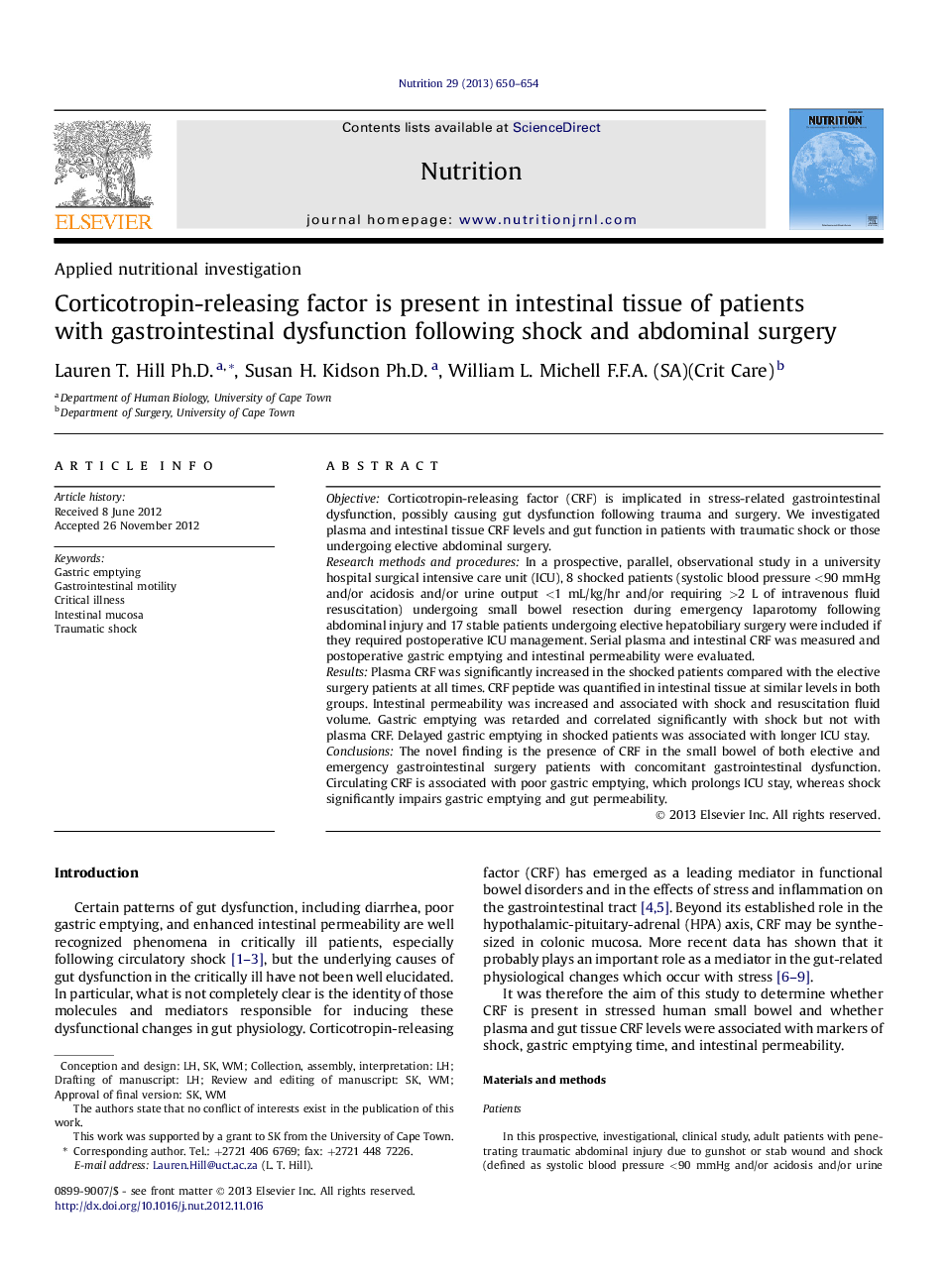| Article ID | Journal | Published Year | Pages | File Type |
|---|---|---|---|---|
| 6089873 | Nutrition | 2013 | 5 Pages |
ObjectiveCorticotropin-releasing factor (CRF) is implicated in stress-related gastrointestinal dysfunction, possibly causing gut dysfunction following trauma and surgery. We investigated plasma and intestinal tissue CRF levels and gut function in patients with traumatic shock or those undergoing elective abdominal surgery.Research methods and proceduresIn a prospective, parallel, observational study in a university hospital surgical intensive care unit (ICU), 8 shocked patients (systolic blood pressure <90 mmHg and/or acidosis and/or urine output <1 mL/kg/hr and/or requiring >2 L of intravenous fluid resuscitation) undergoing small bowel resection during emergency laparotomy following abdominal injury and 17 stable patients undergoing elective hepatobiliary surgery were included if they required postoperative ICU management. Serial plasma and intestinal CRF was measured and postoperative gastric emptying and intestinal permeability were evaluated.ResultsPlasma CRF was significantly increased in the shocked patients compared with the elective surgery patients at all times. CRF peptide was quantified in intestinal tissue at similar levels in both groups. Intestinal permeability was increased and associated with shock and resuscitation fluid volume. Gastric emptying was retarded and correlated significantly with shock but not with plasma CRF. Delayed gastric emptying in shocked patients was associated with longer ICU stay.ConclusionsThe novel finding is the presence of CRF in the small bowel of both elective and emergency gastrointestinal surgery patients with concomitant gastrointestinal dysfunction. Circulating CRF is associated with poor gastric emptying, which prolongs ICU stay, whereas shock significantly impairs gastric emptying and gut permeability.
